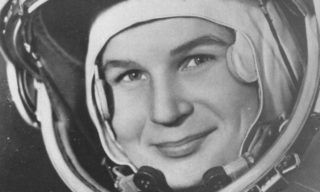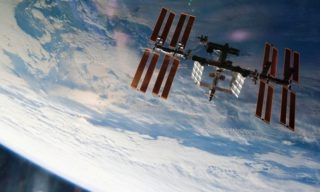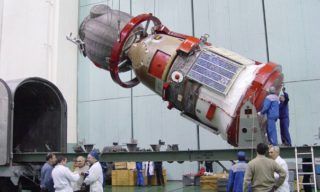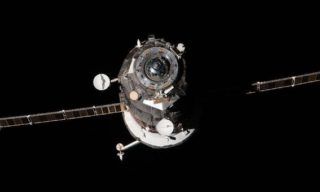To prevent asteroid threat super-heavy booster is needed, – RSC Energia president Vilatiy Lopota stated.
According to his words the booster is to be developed on the basis of existing flight elements, created in the framework of Energia rocket-booster program. “Such booster will be able to deliver and deploy detection system and tracking system elements and even thermonuclear charge to the dangerous space objects if necessary”, – RSC president explained.
He also pointed out the necessity of Russian asteroid observation system development. “We suggest doing it with the help of three space devices placed at Earth-Moon system Lagrangian points,” –he explained, – with the ISS used as a basis for technologies and cooperation elaboration”.
In his opinion to implement this task a cooperation of different organizations and enterprises including international ones is needed. “Many home and foreign space organizations, institutions and companies we develop cooperation with show the interest in our suggestions” – he emphasized.
Source: novosti-kosmonavtiki.ru



















